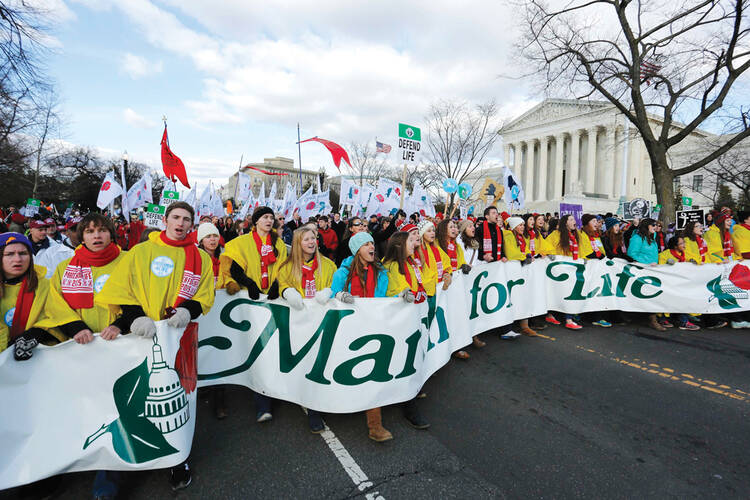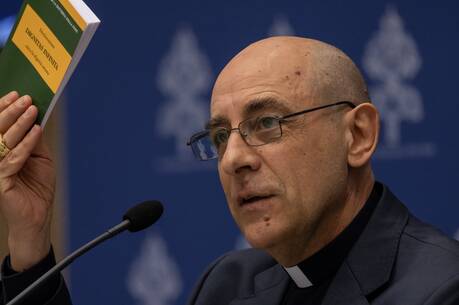Using a phrase long associated with the civil rights movement, Cardinal Sean P. O’Malley. O.F.M.Cap., of Boston told an overflow crowd in Washington, D.C. “We shall overcome” in the fight against abortion. In his homily on Jan. 21 during the opening Mass of the National Prayer Vigil for Life, Cardinal O’Malley said, quoting Pope Francis,“The church cannot and must not remain on the sidelines in the fight for a better world.”
He added, “In our country, people have come together in the fight to overcome racism” and other social ills. “The quest for human rights and solidarity brought together people of faith to ‘repair the world,’ to use the Jewish expression.” Now, Cardinal O’Malley said, the fight is for the right to life, “and we shall overcome,” he said to applause from a crowd of more than 11,000 at the Basilica of the National Shrine of the Immaculate Conception in Washington.
The cardinal, who is chairman of the U.S. bishops’ Committee on Pro-Life Activities, used his sermon to take apart some “American mythology” about abortion. The three biggest myths, he said, are that abortion is a women’s issue, that most Americans “are pro-choice, pro-abortion” and that “young people are overwhelmingly in favor of the pro-abortion position.”
But polling over the past 20 years, according to Cardinal O’Malley, shows “women have consistently been more pro-life than men.” On the second myth, Cardinal O’Malley quoted outgoing president of NARAL Pro-Choice America, Nancy Keegan, who said “there is a large intensity gap” among supporters of legal abortion and their foes.
And young people, the cardinal added to applause, “are the most pro-life segment of the American people.” Five years ago, the Gallup organization “declared pro-life is the new normal,” Cardinal O’Malley said. “Congratulations, young people—you’re normal.”
Indeed, the 42nd annual March for Life and rally in Washington, which drew tens of thousands to the capital on Jan. 22, is twice as old as its participants, predominantly college and high school age students. And as each year’s turnout seems younger, so do the day’s tools of communication.
Participants not only met up by texting or calling each other on their cellphones, they also shared their experiences of the day—and explained reasons for making the trip—by posting many photos on Twitter, Facebook and Instagram. Many began documenting their experience days before the march with posts from buses or rest stops along the way.
On the day of the march, there were online images from pre-march rallies, groups huddled on the National Mall or taking up a huge swath of Constitution Avenue as they made their way to the U.S. Supreme Court. The photos included group selfies, pictures with bishops and even with a cardboard cutout of Pope Francis, but the pro-life cause was also front and center, with most groups carrying placards with phrases like “I am the Pro-Life Generation,” “Defend Life” or “#TeamLife.”
But the ease of sharing photos and connecting is not the only plus side of cellphones and social media use for these marchers. For many, this technology is a way to further spread their message. Under the Twitter hashtag #Whywemarch, they posted their reasons for coming in 140 characters or less or posted photos of themselves holding handwritten signs that explained their reasons.
They could have taken their cue from Pope Francis, who sent a tweet at 7 a.m. (EST) on Jan. 22: “Every Life is a Gift. #marchforlife.” By the following day it had been retweeted 18,807 times and favorited 24,265 times.








